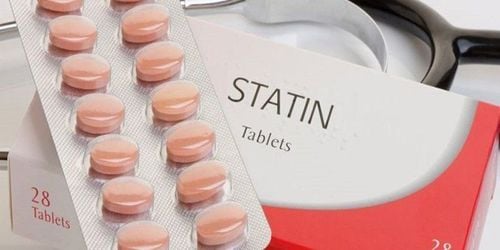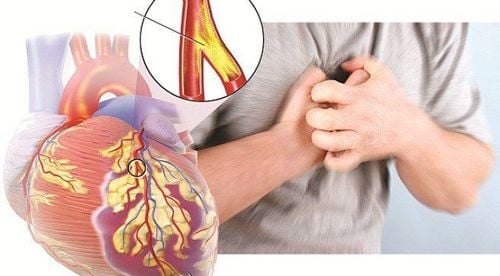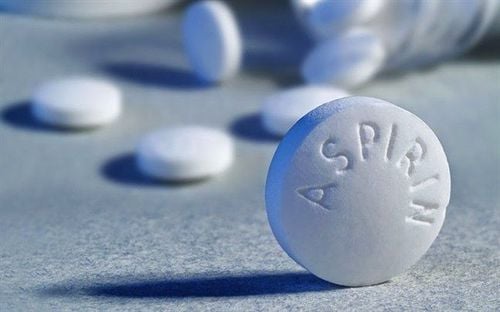This is an automatically translated article.
The article is professionally consulted by Master, Doctor Do Xuan Chien - Head of Department of Examination & Internal Medicine - Department of Medical Examination and Internal Medicine - Vinmec Ha Long International Hospital.Myocardial infarction is one of the main causes of cardiogenic shock. Currently, with the development of modern medicine, the treatment of myocardial infarction has made many progress, but if accompanied by cardiogenic shock, the mortality rate is still high (60-80%).
1. Myocardial infarction – the leading cause of cardiogenic shock
Cardiogenic shock is a condition in which the cardiac output is reduced and cannot meet the oxygen and nutritional needs of the organs in the body.
Diagnosis of cardiogenic shock includes:
In the absence of vasopressors: Systolic blood pressure < 80 mmHg In the presence of vasopressors: blood pressure < 90 mmHg The above blood pressure condition persists for more than 30 minutes. Decreased cardiac output was not associated with hypovolemia. Tissue hypoperfusion Anuria (urine < 30 ml/hr) Peripheral vasoconstriction Psychiatric disorders Myocardial infarction is believed to be the leading cause of cardiogenic shock, especially in the case of extensive anterior infarction when there is a necrosis of the large myocardium. In addition, there may be some other causes such as: ligament rupture in myocardial infarction leading to acute mitral regurgitation, acute interventricular septal perforation in MI, acute myocarditis, severe arrhythmia, severe valvular disease , end-stage dilated cardiomyopathy, after cardiopulmonary bypass surgery,...
People with a history of myocardial infarction, the elderly, people with diabetes, multiple atherosclerosis, cerebral blood vessels, .. there is a high risk of cardiogenic shock during a heart attack .
The proportion of patients with cardiogenic shock during myocardial infarction is approximately 10% of the total number of patients with acute myocardial infarction. When the number of myocardial infarction accounts for 35-45%, it leads to cardiogenic shock. Cardiogenic shock usually occurs in the first 2 days of illness.
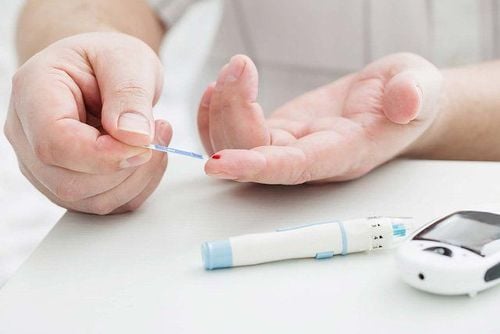
Người mắc bệnh đái tháo đường có nguy cơ sốc tim khi nhồi máu cơ tim
2. Some common signs of cardiogenic shock
When having cardiogenic shock, the patient often has signs such as pale blue, chest pain, shortness of breath, nausea and vomiting, cold skin, purple veins, low blood pressure, rapid pulse, sweating, fainting, confusion. psychosis, confusion, disorientation or indifference to the external environment...
If the patient has a history of heart failure in the past, arrhythmias, abnormal tachycardia, peripheral and venous edema may occur. swollen neck.
When clinically examined, there may be an enlarged heart shadow on the X-ray film and an enlarged liver, faint heart sounds,...
3. Timely handling measures
Patients with cardiogenic shock need to be quickly identified and treated in the emergency department or cardiology department, providing intensive care. It is possible to let the patient breathe through the nose if breathing is good on their own, otherwise, patients with severe respiratory failure or breathing disturbances need to be intubated.
Establish an intravenous line and place an intravenous catheter to monitor the patient's pulmonary artery pressure and cardiac output. Circulatory volume and arrhythmias should be well controlled.
For cardiogenic shock, hemodynamic monitoring is one of the decisive factors for the effectiveness of the treatment process.
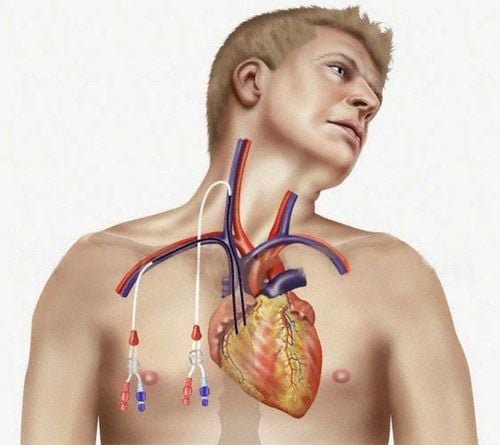
Thiết lập đường truyền tĩnh mạch và đặt catheter tĩnh mạch để theo dõi áp lực động mạch phổi
4. Treatment of cardiogenic shock during myocardial infarction
4.1 Medical treatment
Some drugs used to treat cardiogenic shock in myocardial infarction are:
Dobutamine: Is the most commonly used drug in the treatment of cardiogenic shock, has a role to help increase heart rate and increase myocardial contractility. The drug is indicated when blood pressure > 80 mmHg. Vasodilators: Drugs that dilate blood vessels, thereby reducing preload and afterload for the heart, especially good when acute MI or acute heart failure is associated. However, the drug is only used when blood pressure has been maintained at a stable level. Cardiac drugs: In cases of acute MI with cardiogenic shock, digitalis should not be used because it may increase the risk of arrhythmias leading to death. Digitalis is only recommended for use in cases of heart failure due to cardiomyopathy or heart valve disease. 4.2 Treating the cause
If cardiogenic shock is caused by acute myocardial infarction, the immediate measure is coronary artery reperfusion using fibrinolytics, or percutaneous coronary intervention. , even conduct surgery to make a coronary bridge .
Depending on the cause of cardiogenic shock, there are different treatment measures:
Due to acute compression: The patient should be identified and drained immediately. Due to heart valve disease: Need to do surgery to repair or replace the heart valve. In addition, some cases of cardiogenic shock need to run a heart-lung machine (Hemopump) for timely emergency treatment for better efficiency.

Bạn có thẻ đăng ký gói sàng lọc tim mạch tai Vinmec, giúp phát hiện sớm bệnh lý tim mạch
To protect heart health in general and detect early signs of myocardial infarction and stroke, customers can sign up for Cardiovascular Screening Package - Basic Cardiovascular Examination of Vinmec International General Hospital . The examination package helps to detect cardiovascular problems at the earliest through tests and modern imaging methods. The package is for all ages, genders and is especially essential for people with risk factors for cardiovascular disease.
Master. Doctor Do Xuan Chien is former Deputy Head of Cardiology Department of Phu Tho Provincial General Hospital with more than 11 years of experience working in Cardiology and Metabolic Pathology. Currently, he is the Head of the Department of Medical Examination and Internal Medicine, Vinmec Ha Long International General Hospital.
Associate Professor. Dr. Hoang Dang Mich has over 42 years of medical career, has strengths in the specialized fields of Liver - Kidney - Immune pathology... Currently, he is a Specialist Consultant of General Internal Medicine Department of Examination. Medicine & Internal Medicine, Vinmec Ha Long International General Hospital.
Customers can directly go to Vinmec Health system nationwide to visit or contact the hotline here for support.
MORE
What is cardiogenic shock? Causes of cardiogenic shock Cardiogenic shock: What you need to know Expression and emergency management of cardiogenic shock






